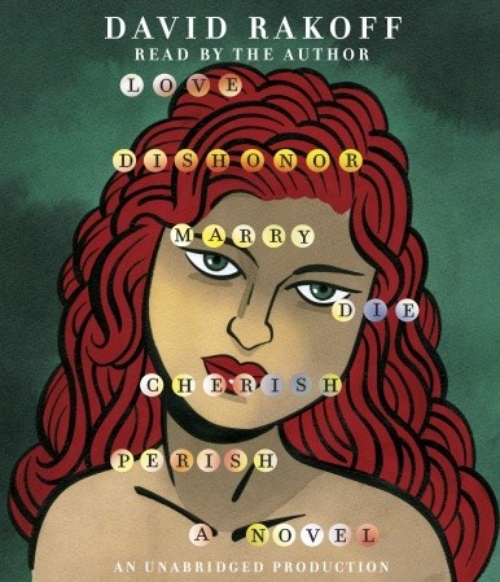
The Book Room: Issue 48
Summer reads: David Rakoff, Leanne Shapton, Andrew F. Sullivan and more.
Love, Dishonor, Marry, Die; Cherish, Perish (Doubleday Canada), the final novel from Canadian-born humourist David Rakoff, clips merrily over half a century’s worth of American stories. Completed just a few months before Rakoff died last year at the age of forty-seven, Love, Dishonor... is written entirely in verse, a difficult form that, in Rakoff’s hands, becomes a fine tool. His strongest moments of wit hit heaviest at the end of his musical passages; so distracted are we by the rhythm of his words that the final, clever stroke is all the more satisfying. AIDS, affairs, abuse and art are all themes in this very human farewell from a beloved literary talent.
—Haley Cullingham
The Perils of Pedagogy (McGill-Queen’s University Press), edited by Brenda Longfellow, Scott MacKenzie and Thomas Waugh, is a collection of essays, articles and personal musings that sheds well-deserved light on filmmaker and queer activist John Greyson. The contributing writers—both interested scholars and close friends—make clear the breadth and importance of Greyson’s body of work, lovingly walking readers through thirty years of art and activism. The Perils of Pedagogy mixes images, reviews and academic criticism to great effect, creating a subtle portrait of Greyson’s evolving artistic talent and gift for advocacy. The marked admiration that all involved display for Greyson serves as a backdrop for discussions ranging from the Nicaraguan Revolution to media portrayals of the AIDS crisis. Regardless of whether readers have never heard of Greyson or are intimately acquainted with his filmography, they will find this book worth the read.
—Alyssa Favreau
Sunday Night Movies (Drawn & Quarterly) is as luminous as the silver screen that illustrator Leanne Shapton so clearly adores. A series of original watercolours culled from classic black-and-white films, Sunday Night Movies meanders through famous faces, familiar scenes, oblique title credits and iconic film-studio logos. The reader might find herself remarking, “Oh, that must be Down By Law,” or, “There’s The Creature From the Black Lagoon,” but the book transcends mere visual trivia. Instead, Shapton has woven a smitten, understated history of film that feels at once universal and deeply personal.
—Drew Nelles
In All We Want Is Everything (Arbeiter Ring Publishing), Andrew F. Sullivan assembles a collection of short stories that are at once tragic, mortifying and funny. Although Sullivan’s voice is evident throughout the seventeen stories, each is different enough that the narratives seldom feel repetitive. These are the kinds of tales you love to read but are glad are not happening to you, involving estranged family members, childhood memories and personal and financial struggles. “The Lesser Half of Sir John A. MacDonald,” about a man who has travelled the country to find a city that will not break him, is particularly strong.
—Chris Hanna
Dennis Bock’s newest book is part detective novel, part imagined memoir and part family drama, and Going Home Again’s (HarperCollins Canada) sum lacks for the combination. While the story contains gripping, almost tactile scenes, it feels like a forced union of three ideas the writer can’t quite fit together. Although this can mean jarring reading, it does suit the story’s main themes: the longevity of love, the experiences that shape one’s character and the reconciliation of the present self with the past. Inhabiting the novel are a brother with a violent streak, a lost love and an old friend, and a faraway family. Jumping between Toronto, Madrid and Montreal, protagonist Charlie Bellerose is separated from his Spanish wife and daughter as he revisits the city of his birth. The vivid details and character renderings are adrift in the structureless narrative, and the main story lines are weighted down by less emotionally effective, occasionally indulgent elements. But, as with memory itself, sifting through the clutter in Going Home Again reveals moments of pathos, beauty and strength.
—Haley Cullingham





